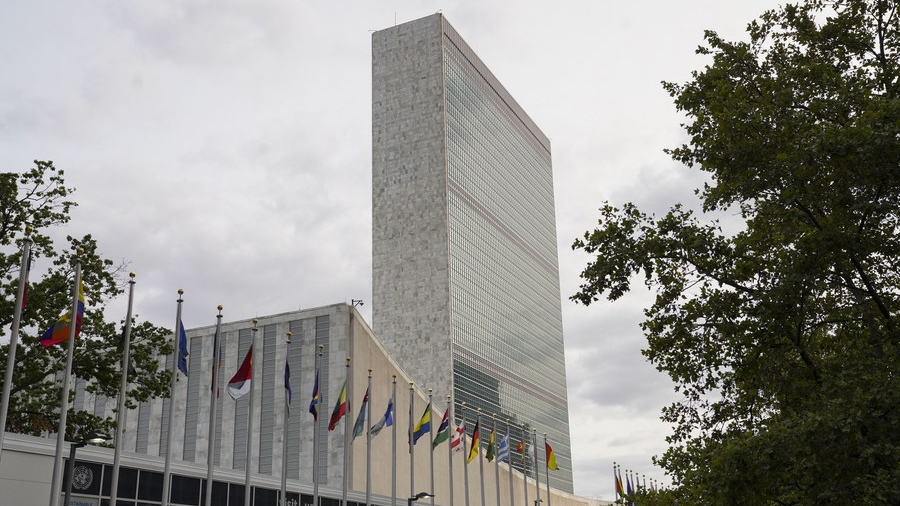
The United Nations headquarters in New York, the United States, September 14, 2020. /Xinhua
The United Nations headquarters in New York, the United States, September 14, 2020. /Xinhua
World output growth is projected to decelerate from an estimated 3.0 percent in 2022 to 1.9 percent in 2023, marking one of the lowest growth rates in recent decades, according to a UN report launched on Wednesday.
The UN World Economic Situation and Prospects 2023 report predicted global growth to moderately pick up to 2.7 percent in 2024, as some macroeconomic headwinds are expected to begin to subside next year.
Amid high inflation, aggressive monetary tightening and heightened uncertainties, the current downturn has slowed the pace of economic recovery from the COVID-19 crisis, threatening several countries – both developed and developing – with the prospect of a recession in 2023, the report said.
It said growth momentum significantly weakened in the United States, the European Union and other developed economies in 2022, adversely impacting the rest of the global economy through a number of channels.
In the United States, gross domestic product (GDP) is projected to expand by only 0.4 percent in 2023 after an estimated growth of 1.8 percent in 2022, the report said.
Growth in China is projected to moderately improve in 2023. With the government adjusting its COVID policy in late 2022 and easing monetary and fiscal policies, China's economic growth is forecast to accelerate to 4.8 percent in 2023, according to the report.
It pointed out that tightening global financial conditions, coupled with a strong dollar, exacerbated fiscal and debt vulnerabilities in developing countries.
Most developing countries saw a slower job recovery in 2022 and continue to face considerable employment slack, the report said.
It warned that slower growth, coupled with elevated inflation and mounting debt vulnerabilities, threatens to further set back hard-won achievements in sustainable development, deepening the already negative effects of the current crises.
In 2022, the number of people facing acute food insecurity more than doubled compared to 2019, reaching almost 350 million. A prolonged period of economic weakness and slow income growth would not only hamper poverty eradication, but also constrain countries' ability to invest in the 2030 Sustainable Development Goals (SDGs) more broadly, the report stressed.
"The current crises are hitting the most vulnerable the hardest – often through no fault of their own. The global community needs to step up joint efforts to avert human suffering and support an inclusive and sustainable future for all," Li Junhua, UN undersecretary-general for economic and social affairs, said in a statement on the release of the report.

Employees work at an assembly line of the north China base of FAW-Volkswagen in north China's Tianjin, January 11, 2023. /Xinhua
Employees work at an assembly line of the north China base of FAW-Volkswagen in north China's Tianjin, January 11, 2023. /Xinhua
The report called for governments to avoid fiscal austerity which would stifle growth and disproportionately affect the most vulnerable groups, affect progress in gender equality and stymie development prospects across generations.
It recommended reallocation and reprioritization of public expenditures through direct policy interventions that will create jobs and reinvigorate growth, noting this will require strengthening of social protection systems, ensuring continued support through targeted and temporary subsidies, cash transfers, and discounts on utility bills, which can be complemented with reductions in consumption taxes or custom duties.
"The pandemic, the global food and energy crises, climate risks and the looming debt crisis in many developing countries are testing the limits of existing multilateral frameworks," the report said. "International cooperation has never been more important than now to face multiple global crises and bring the world back on track to achieve the SDGs."
Additional SDG financing needs in developing countries vary by source, but are estimated to amount to a few trillion U.S. dollars per year, according to the report.
Stronger international commitment, the report said, is urgently needed to expand access to emergency financial assistance, to restructure and reduce debt burdens across developing countries, and scale up SDG financing.
Source(s): Xinhua News Agency